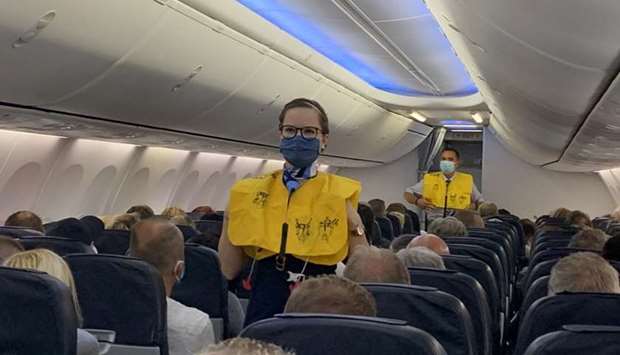Germany may introduce compulsory coronavirus testing for holidaymakers returning from high-risk destinations after the number of new infections in the country hit a two-month high, the health minister said on Saturday.
Health Minister Jens Spahn told Deutschlandfunk radio the government wanted to do everything possible to stem the spread of the virus while also respecting people's basic rights."We are also checking whether it is legally possible to oblige someone to do a test, because it would be an encroachment on freedom," Spahn said.
The minister, who is a senior member of Chancellor Angela Merkel's conservatives, added that the courts were examining all coronavirus measures to ensure they are proportionate in light of their impact on basic rights.
On Friday, Spahn and his regional counterparts from Germany's 16 federal states agreed that authorities would offer returning holidaymakers free tests on a voluntary basis.
Arrivals from countries designated as high-risk - which currently include the United States, Brazil and Turkey - will be eligible for immediate tests, while arrivals from other places will be able to get tested within three days.
If a holidaymaker arriving home from a high-risk country tests negative they will not have to observe a 14-day quarantine, which is otherwise mandatory though it has been loosely enforced.
Germany has so far done a better job than many countries at containing the virus thanks to early and extensive testing.
However, video footage of unruly behaviour by some German tourists in Spain has raised concerns that holidaymakers are at increased risk of infection and could bring the virus home.
The number of new confirmed cases increased sharply on Friday to 815, data from the Robert Koch Institute (RKI) for infectious diseases showed, the biggest tally since mid-May. It remained high on Saturday with 781 new cases.
The World Health Organization reported a record increase in global coronavirus cases on Friday.

